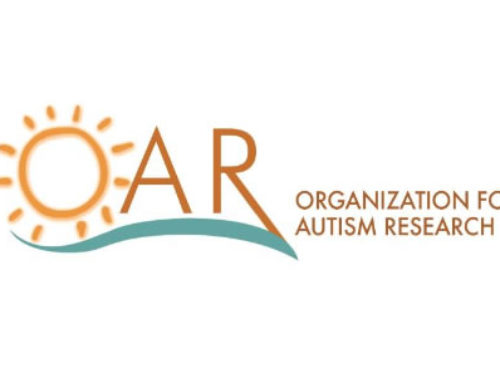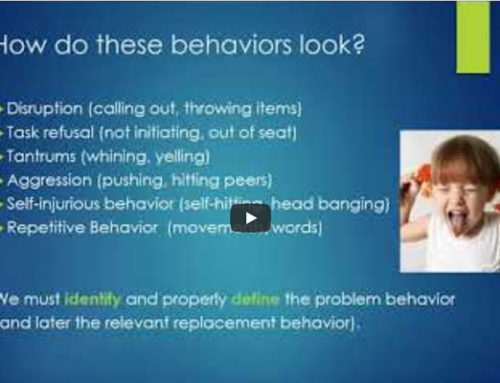So, What is an FBA?
By: Dr. Jane Barbin, PhD, BCBA-D, LBA
It is important to be informed, as a parent and educator, when a child is displaying behavioral challenges. Of course, this can directly impact the child’s ability to perform in the most inclusive way and to make meaningful and optimal gains for lifetime success.
Across various school districts, the disturbing practice of responding to problem behavior of a child with a disability through discipline has been seen, whereas the child is sent home, suspended, given detention, sent to “in school” restriction, or otherwise disciplined without the proper supports to encourage appropriate behavior. Depending on the child’s disability, level of functioning, cognitive skills, etc. this may not change behavior at all and can result in the child missing needed instruction. It can also result in an eventual change of placement (which may or may not be appropriate).
We need to address the underlying cause of problem behavior if we are to help our children learn and grow, develop adaptive coping skills, and reach their potential! School districts and classroom teams vary drastically in their skill and ability to create an adequate (if not best practice) Functional Behavioral Assessment or FBA. This is required by law when a student manifests behaviors which interfere with their learning or are dangerous to themselves or others. We must first identify the factors related to the particular problem behavior, such as the child’s desire to escape, get attention or gain access to something preferred. The behavior may also provide its own reinforcement, such as with some but not all repetitive behaviors. Just looking at the behavior itself (meaning “how it looks”) does not give us the answer to the function of the behavior. We must assess the possible reasons (or functions) in a systematic way if we are to be successful.
A good FBA will take into consideration factors such as skill deficits (including meaningful play skills, social skills, effective ways to communicate with the world around them, and academic deficits such that a task is not too hard, confusing or non-preferred). Often neurobiological factors are at play, such as in impulsivity or inflexibility, and these must be addressed for meaningful behavior change. The environment also matters a lot. The FBA should include clear, operationally-defined behaviors and result in a hypothesized function or functions (aka “reasons”) for the behavior. A contrived way in schools of insisting that only one behavior be addressed at a time or that only one function is identified in an FBA is counterproductive and not based on what research tells us. Generally, problem behavior tends to be sensitive to more than one function or reason. This highlights the need for good assessment as well as good training of school staff and clinicians.
The Functional Behavioral Assessment needs to include both direct observations of the behavior using structured assessment processes (for ex: Structured ABC Analyses) and indirect measures (FAST interviews with parents/staff). Then, the assessment team would move to a more controlled, systematic process called “functional analysis” based on their resources and training when students display treatment-resistant behavior or when past plans have not been effective.
Stay posted for the continuation of this topic in Part 2 of our series… Coming Soon!
Related Articles
Managing Behavior to Improve Your Child’s Potential (Part 2 of Series)
Managing Behavior to Improve Your Child’s Potential (Part 3 of Series)








